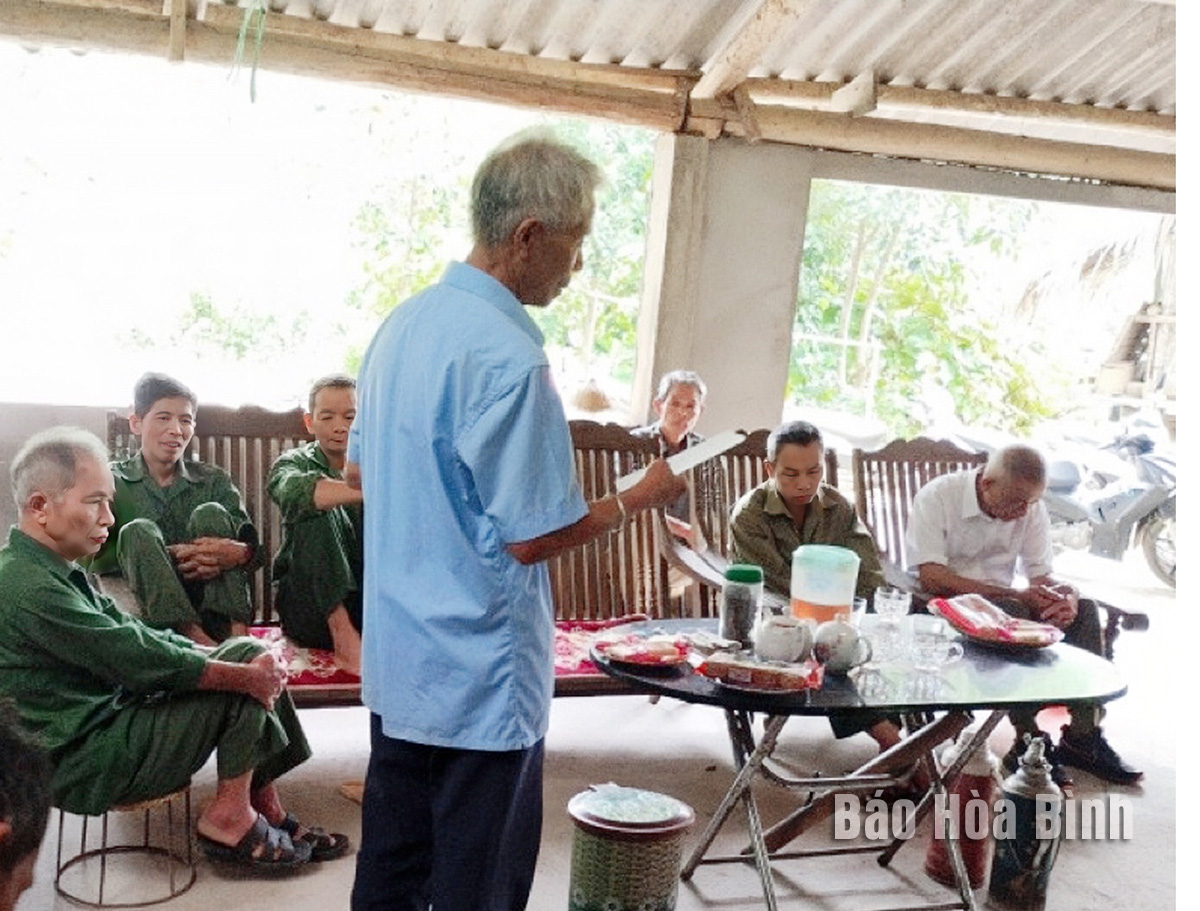Ban Van Than in Duong hamlet, Vay Nua commune, Da Bac district, has been teaching the Nom-Dao script for nearly 15 years, contributing to preserving the language and culture of the Dao Tien ethnic group.
Ban Van Than in Duong hamlet, Vay Nua commune,
Da Bac district, has been teaching the Nom-Dao script for nearly 15 years.
The 80-year-old man, who is called "the teacher”
by locals, said when he was small, his father taught him the writing, culture,
and traditional practices of Dao Tien people.
He knows how to write, as well as folk songs,
idioms and proverbs of the group. After retirement, the man and his peers in
the neighborhood collected, compiled and disseminated books on the Nom-Dao
script and the custom of Dao Tien people.
Duong hamlet is home to 79 households with 333
people, all belonging to the Dao Tien group. However, not many of them know how
to read and write the language.
In 2009, Than asked for permission from the
communal People’s Committee to popularise the language among local officials
and residents. Since then, he has maintained Nom Dao language classes in Duong
and Lau Bai hamlets of Vay Nua commune, and Ngu hamlet of Hien Luong commune.
Dang Van Binh in Duong hamlet said he has joined
Than’s class since 2015, adding he and other members have tried to learn the
language to pass down it to next generations.
Most Dao Tien people in Vay Nua now know their
language, writing, and custom.
Xa Van Si, Chairman of the Vay Nua commune
People’s Committee, said more than half of the local population are Dao Tien,
mainly in Duong, Thin, Mo Ne, and Lau Bai hamlets.
Thanks to Than’s classes, the number of people
fluent in the language has been on the rise, he noted, pledging that the
commune will continue supporting the man’s efforts.



